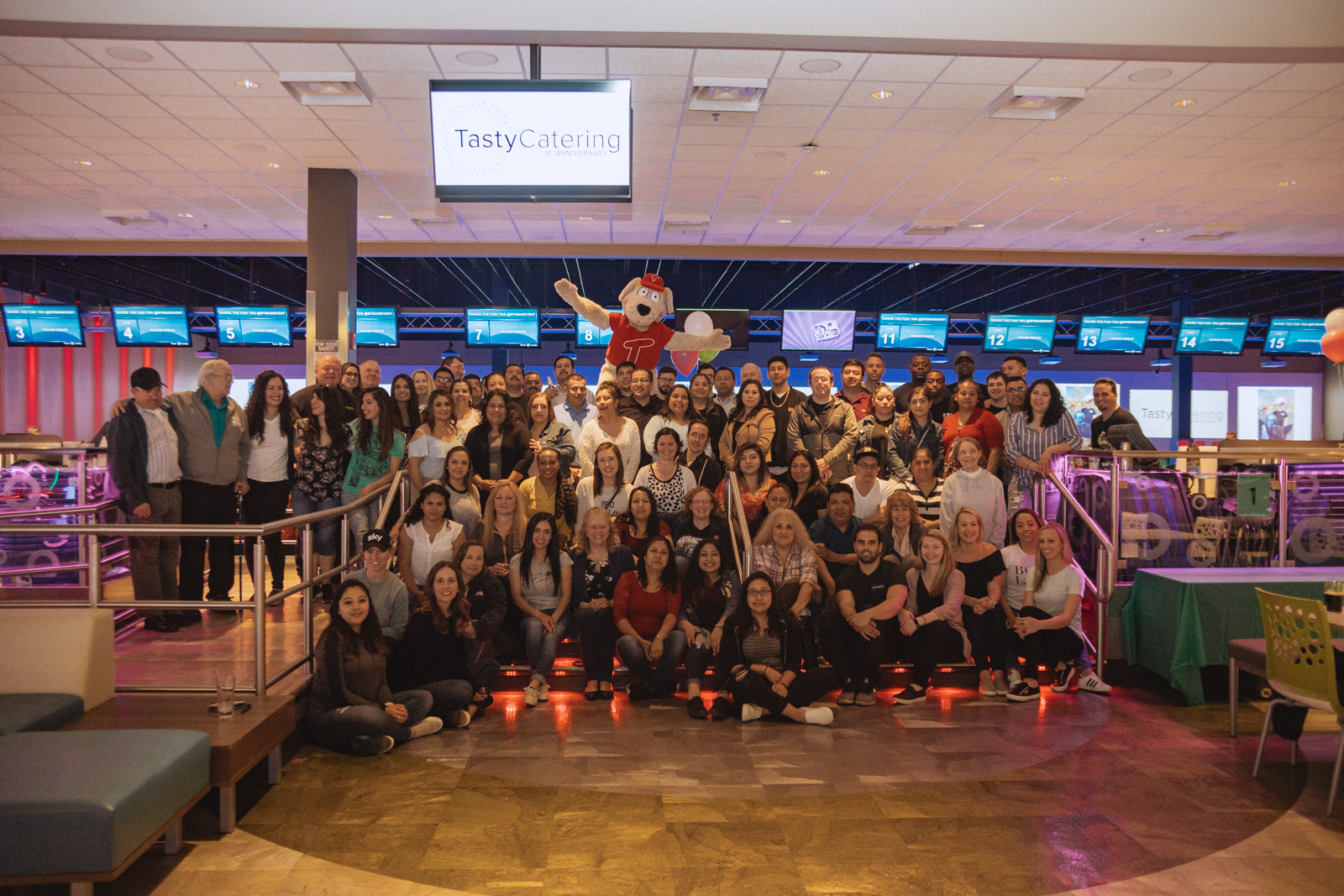As leaders in the catering industry, we’re often challenged with the hurdles of growing and running a business dedicated to quality and exceeding customer expectations. I’ve learned that if a company’s culture isn’t properly defined by employees, even the most sound organizational structures can deteriorate in the face of external pressures.
Several years ago, two Tasty Catering employees challenged me to change my command and control leadership style to one that involves more culture-first decisions. My team helped me realize the value of leaders dedicated to building emotional intelligence and how it plays a major role in creating an organizational culture designed by employees—for employees and owners.
The outcome was eye-opening, resulting in higher levels of employee engagement than we anticipated. This post outlines my experience and four ways our company was able to create a more engaged workplace together:
Instill leadership at all levels
We realized that establishing core values with empowering statements such as “freedom and responsibility to make decisions” or “ownership of tasks” go a long way in building a strong company culture in the catering industry. Core values encourage employees to use their cognitive and creative abilities to solve problems and define solutions. They learn to lead.
Here are some examples of leadership we’ve experienced at Tasty Catering:
• We were struggling to build sales after the recession and an account executive of our corporate sales team, Peggy Kulato, had the idea to spend marketing money on helping O’Hare area hotels replace their in-house catering and food service with Tasty Catering. She generated a large return that continues to this day.
• When Tasty Catering first entered the wedding market, our operations director, Eugene Rios, connected us with the staff we needed. He coordinated staffing arrangements through temporary labor providers, who agreed to let Eugene recruit staff after a minimum of hours were met. Eugene recruited enough event staff for us to manage two weddings a day.
• Our business development and key accounts sales representative (aka human relationship builder), Ellen Harte, persuaded wedding venues to feature Tasty Catering as a preferred or exclusive vendor. Her efforts have resulted in about 90 weddings a year.

Group photo from 30th Anniversary
In all three instances, these employees shared ideas that either helped us weather a recession or resulted in a higher revenue stream.
Want to learn more about creating a culture-first catering company?
Attend our session at Catersource! I will be speaking along with my daughter, Erin Walter, CEO of Nuphoriq. We will be talking about our different but impactful approaches to workplace culture that may help you discover a leadership style that's best for you.
Create a culture of financial transparency
Many employees perceive that their company generates more in revenue than it does. Financial transparency removes this lack of clarity and makes it easier for them understand what is needed to generate more revenue, and in turn, more in their paycheck. This is also especially important for when an organization is facing external challenges like a recession.
We purse our financial transparency by using some of the touchpoints discussed in the “Great Game of Business.”

GGOB Meeting
Rather than employees wondering and worrying about profitability, they know what the profit is every week and think of ways to increase it through their own ideas and actions. They may share discretionary thoughts like “what if we bought gasoline on Tuesdays when gas is cheaper?”
Two heads are better than one
Inclusion in the decision-making process at all levels pays enormous dividends! Research suggests that the human brain processes approximately 60,000 thoughts a day. When an organization shares its external problems with staff, they are more inclined to share discretionary thinking towards potential solutions.
Everybody is somebody
We must remember that our staff have emotional and spiritual needs, and that they want the best for themselves and their families, just as we do. Leaders who understand employees are not revenue generators, but are in fact “somebody,” and convey that message to their staff through actions earn respect and trust from their people. The result is that employees have the confidence to volunteer solutions to challenges.
Every catering company is different, and employees have a wide range of thoughts, needs and talents. Creating a culture that values the employees who work for them has resulted in increased productivity, performance, sales, profit and rewards.



